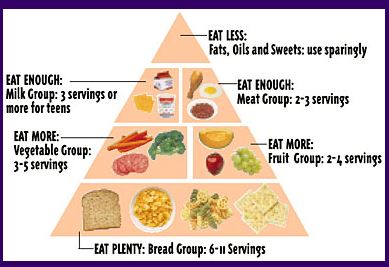
Advertisement
Nearly half of the officials who serve on the government’s Dietary Guidelines Advisory Committee (DGAC) have direct conflicts of interest with Big Food, Big Pharma and weight loss industry corporations with a stake in the outcome of said guidelines, a new report from the watchdog group U.S. Right to Know has found.
Nine of the 20 DGAC members are on the dole of drug companies like Abbott, Novo Nordisk and Eli Lilly, as well as private endeavors and companies like the National Dairy Council and Weight Watchers International. These 20 folks are considered food and nutrition “experts,” providing recommendations for updating the United States government’s official dietary advice to the country.

For its report, which was published on October 4, U.S. Right to Know compiled publicly available data from the last five years about each of the 20 DGAC members’ ties to industry. Ultimately, these ties were found to be disqualifying factors, at least in a just and honest society.
The report concludes that “with high-risk conflicts of interest still present on the DGAC, the public cannot have confidence that the official dietary advice from the U.S. government is free from industry influence.”
The only “encouraging findings” in the report are that seven DGAC members have no confirmed or possible conflicts of interest, at least in the past five years.
(Related: The government is lying about the safety of milk, too – only raw, unpasteurized milk is nutritious and supportive of gut health.)
USDA, HHS disclosure list of 2025 DGAC members’ relationships with industry based on VOLUNTARY responses, meaning members can easily LIE and get away with it
We already have somewhat of an idea as to the composition of the 2025 DGAC members’ relationships with industry, thanks to disclosures procured earlier this year by the U.S. Department of Health and Human Services (HHS) and the U.S. Department of Agriculture (USDA). These disclosures are limited and incomplete, though.
“These disclosures were aggregated, voluntary, did not identify each individual member’s conflicts and only covered the last year,” reports Children’s Health Defense, a project of 2024 presidential contender Robert F. Kennedy Jr. “The report was an effort to fill in the gaps of the agencies’ flawed disclosure.”
Entitled “Full Disclosure: Assessing Conflicts of Interest of the 2025 Dietary Guidelines Advisory Committee,” the disclosure report contains six recommendations to improve the operation of DGAC, including that the USDA and HHS should:
1) Not appoint members with high-risk conflicts of interest
2) Disclose individual members’ conflicts during the last five years
3) Use a transparent disclosure form, not an OGE form 450 which is confidential
4) Publish a list of provisional appointees prior to appointment, open for public comment, as recommended by NASEM
5) Include leadership roles or paid roles at conflicted nutrition organizations in disclosures of possible conflicts of interest
6) Have Congress expand the Physician Payments Sunshine Act to cover the nutrition field
U.S. Right to Know is making its own recommendations as well based on a consortium of 15 peer-reviewed public health studies showing how the food and beverage industries, as well as industry-funded groups, try to influence public opinions, scientific research, public health conferences and government policies that deal with matters of diet and nutrition.
“This is why you have to do the opposite of whatever U.S. ‘experts’ say to do if you actually want to be healthy,” wrote one commenter about how official U.S. food policy should mostly be ignored.
“This is the same type of corruption we’ve been dealing with in every facet of government and related agencies for many decades,” wrote another.
The illness industry depends on unhealthy people eating unhealthy food. Learn more at JunkFood.news.
Sources for this article include:
Advertisements







